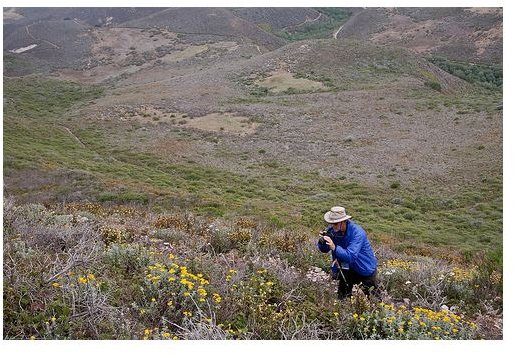What Are the Top Biologist Types of Work?
Biologists study vital life processes and apply their findings to the creation of new processes or products, either adding to the corpus of knowledge or solving problems.
Most biologists perform either basic research to gain a better understanding of fundamental life processes, or applied research to develop new products or processes and solve problems. They unravel mysteries of science, formulate new drugs, establish new cures, increase crop yield, develop bio-fuels, and do more. They work through field observations, laboratory dissections, and experimentation, and publish comprehensive scientific papers to document their findings. Below, we take a look at specialties in biology including the varied biologist types of work.
Image Credit: flickr.com/Mike Baird
Botanists
Botanists specialize in the study of plants and their environments. They identify and classify plants, study the structure and functions of plant parts, analyze the biochemistry of plant processes, research into plant diseases and their possible cures, and more. Some botanists concern themselves with all plant life, whereas others delve into sub-specializations such as fungi, algae, lichens and flowering plants.
Major employers of botanists include educational institutions, governments, environmental and related industries. Botanists also have good scope in field biologist careers studying the natural flora, or the various plants in agricultural and farms.
Zoologists
Zoologists specialize in the study of animals. They research the origin, behavior, and life processes of animals, either by observing live animals in controlled or natural environments, or by dissecting dead animals. An important role of zoologists is to research the various animal diseases and offer cures.
Of the various zoological sub-specializations, ornithologists specialize in the study of birds, mammalogists specialize in the study of mammals, herpetologists study reptiles, and ichthyologists study fish. One major group of zoologists are wildlife biologists who conduct experiments with live wildlife to establish the relationship of such animals with the ecology.
Apart from the government, universities, and research institutions, zoologists find employment as park rangers in natural parks, and in zoos, aquariums, and other nature centers to conduct tours and educate the visitors, preserve the natural resources, and carry out endangered species preservation programs.
Microbiologists
Microbiologists research the growth and characteristics of microscopic organisms such as bacteria, algae, or fungi. Many microbiologists specialize further to research on environmental, food, agricultural, bioinformatics, virology, or industrial domains.
Practical applications of microbiologists work include analysis of a certain bacteria or virus to develop medications that stop the spread of disease, research to combat diseases such as cancer and Alzheimer’s disease, and other such initiatives.
Pharmaceutical companies and biotechnology firms constitute the major employers of microbiologists.
Ecologists and Environmental Biologists
Ecologists study the relationships between organisms and their environments or among various organisms. They examine the effects of rainfall, altitude, pollutants, temperature, population size, and other factors on specific organisms, the impact of behaviors and activities of organisms on the ecology, and economic impacts of biological issues such as species extinction, deforestation, pollution, and other factors.
Ecologists and environmental biologists aim to solve environmental problems and preserve the environment. They educate the public through their reports and publications, and advise lawmakers who draft legislation on biomedical research and environmental protection.
The major jobs for biologists in environment and conservation are at government agencies, nonprofit groups, law firms and other private industries.
Marine Biologists
Marine Biology is a popular specialization of biology, specializing in the study of plants, animals, and microorganisms in oceans and other water bodies.
Practical applications of marine biologists work include identifying the threats to marine life by pollution, global warming, and other changes, the impact of the behaviors and activities of marine animals and plants on the ecology, and more.
Major employers of marine biologists include government, schools and universities, consulting firms, and research laboratories.
Biotechnology
A new biologist type of work is biotechnology. Biotechnologists apply knowledge of chemical composition and electrical and mechanical energy of living cells for ecosystem modeling and gene sequencing to shape metabolism, reproduction, and growth of organisms, aimed at development and enhancement products, tools, and processes in agriculture, food science, and medicine.
About 40 percent of all biologists find employment in various federal, state, and local government departments, making them the largest employers of biologists. Others top employers include scientific research and testing laboratories, pharmaceutical and medicine manufacturing industry, and educational institutions.
References
- Bureau of Labor Statistics. Occupational Outlook Handbook 2010-11. “Biological Scientists.” https://www.bls.gov/oco/ocos047.htm. Retrieved 02 January 2011.
- American Institute of Bilogical Sciences. “Careers in Biologiocal Sciences.” https://www.aibs.org/careers/index.html. retrieved 02 January 2011
- Biological Society of America. “Opportunities.” https://www.botany.org/bsa/careers/opportunities.php. Retrieved 02 January 2011.
